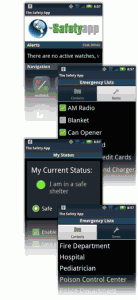 The Foundation for Individual Rights in Education (FIRE) is currently running an essay contest (the Freedom in Academia Essay Contest). High school juniors and seniors for the 2012-2013 school year are eligible to participate in FIRE’s essay contest. To enter, students must submit an essay between 800 and 1,000 words on the provided topic.
The Foundation for Individual Rights in Education (FIRE) is currently running an essay contest (the Freedom in Academia Essay Contest). High school juniors and seniors for the 2012-2013 school year are eligible to participate in FIRE’s essay contest. To enter, students must submit an essay between 800 and 1,000 words on the provided topic.
One $10,000 first prize, one $5,000 second prize, and three $1,000 runner-up prizes will be awarded for the best essays. Four $500 winners will be chosen from the remaining entrants in a drawing.
FIRE will accept essay contest entries from August 1 to November 25, 2012.
Instructions:
Familiarize yourself with FIRE and FIRE’s issues. Our mission statement:
FIRE’s mission is to defend and sustain individual rights at America’s colleges and universities. These rights include freedom of speech, legal equality, due process, religious liberty, and sanctity of conscience — the essential qualities of individual liberty and dignity. FIRE’s core mission is to protect the unprotected and to educate the public and communities of concerned Americans about the threats to these rights on our campuses and about the means to preserve them. A great resource is FIRE’s Guide to Free Speech on Campus. For more information, explore thefire.org.
Watch two short videos about real students who were censored and punished for speech that is protected by the U.S. Constitution. Students should also watch FIRE’s other videos, available on YouTube.com/theFIREorg.
Answer the essay question: Why is free speech important at our nation’s colleges and universities? Using examples from both videos, discuss how censorship of student speech is incompatible with higher education. Your essay should be 800-1,000 words.
Submit your essay through the online form at http://thefire.org/article/14663.html. Only current high school juniors and seniors (graduating in the spring of 2013 or 2014) may apply.







 Only a few years ago, online education was the realm of the non-traditional student. Whether you were a high school dropout, a dad working three jobs, or a retiree who simply wanted to take some classes, chances were that you were not a typical college student if you were signed up for courses online.
Only a few years ago, online education was the realm of the non-traditional student. Whether you were a high school dropout, a dad working three jobs, or a retiree who simply wanted to take some classes, chances were that you were not a typical college student if you were signed up for courses online.
